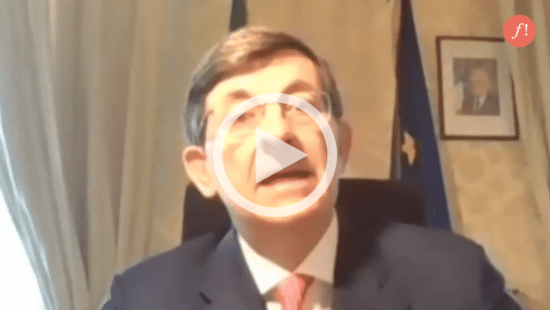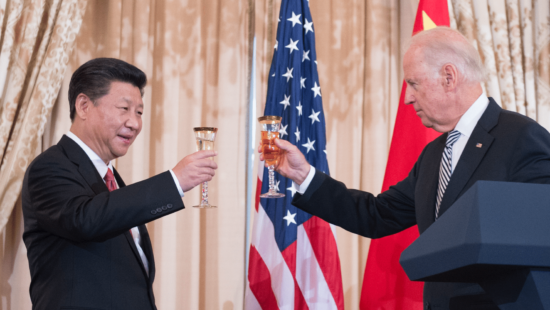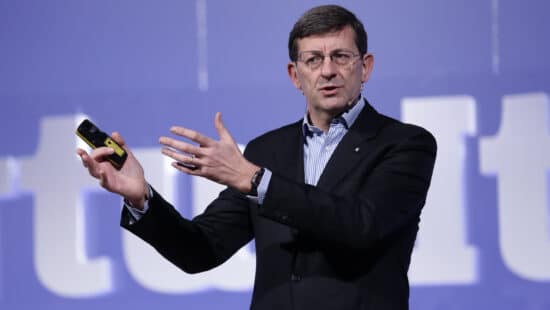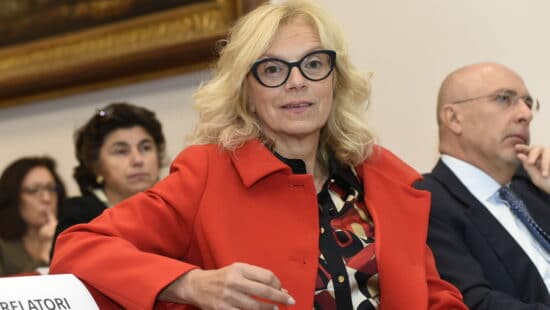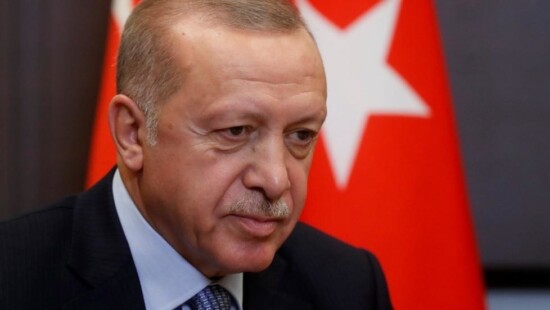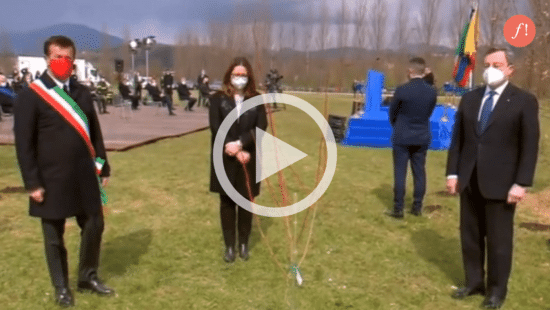Recovery, Colao: "Connettere tutti in banda ultralarga entro il 2026" [embedyt] https://www.youtube.com/watch?v=uOKsdQKtuq8[/embedyt] Milano, 18 mar. (askanews) - Il ministro dell'Innovazione e della Transizione digitale, Vittorio Colao, punta a connettere tutta italia in banda ultralarga entro il 2026. In audizione sul Recovery plan presso le commissioni congiunte Trasporti della Camera e Bilancio, Lavori pubblici e Politiche Ue del Senato Colao ha…
Archivi
Usa-Cina. Cosa c’è oltre lo scontro?
Stati Uniti e Cina si incontrano per la prima volta dopo nove mesi in Alaska. Al di là della retorica, l’America quando si muove nell’Indo Pacifico non può non tener conto del Dragone, anche per questo pensa a dossier per testare spazi di cooperazione
Cosa collega terrorismo e populismo. Un saggio totale di Civiltà Cattolica
Padre Alvaro Lobo Arranz nell’ultimo numero in uscita de La Civiltà Cattolica, illustra con una forza sorprendente i problemi del tempo contemporaneo, di questo XXI secolo ormai giunto, come scrive l’autore, alla maggiore età. L’approfondimento di Riccardo Cristiano
L'egemonia di Mark Rutte. Chi zompa sui tavoli e chi piange sulle matite rosse
Il Partito popolare per la libertà e la democrazia (Vvd) del premier uscente è riuscito a confermarsi come la prima forza politica. Al secondo posto il Democratici 66 (D66). La sconfitta del populista Geert Wilders e la moda delle matite rosse che spopolano in rete…
Non dite a Huawei e Zte che Colao vuole un’Italia digitale “europea e atlantica”
In audizione al Senato il ministro Colao ha presentato il suo piano per l’Italia digitale. Tutti connessi in altissima velocità entro il 2026. Su 5G e cybersecurity dice: “Italia chiaramente nel quadro europeo e atlantico”. Huawei e Zte avvisate…
Giornata mondiale del riciclo, tutti sono chiamati a fare la loro parte
Istituita nel 2018 dalla Global recycling foundation, il 18 marzo si celebra la Giornata mondiale del riciclo; una giornata in cui tutti sono chiamati a dare il proprio contributo per lo sviluppo di quell’economia circolare che valorizzi le risorse naturali e tuteli il futuro del pianeta. Primi fra tutti governi e istituzioni; ma anche i cittadini, chiamati a fare la loro parte attraverso una corretta raccolta differenziata, mezzo fondamentale per un riciclo efficiente
Papa Francesco interviene sulla controversia della comunità di Bose
Il pontefice scrive alla comunità monastica, esortandola a non lasciarsi turbare da “voci che mirano a gettare discordia tra voi: il bene dell’autentica comunione fraterna va custodito anche quando è alto il prezzo da pagare!”
Automotive, come coniugare mobilità sostenibile e innovazione
La focalizzazione sull’economia green, le innovazioni tecnologie e la mobilità di sviluppo sostenibile stanno rivoluzionando il settore dell’automotive. Patrizia Giangualano, indipendent director in alcune aziende del settore dei trasporti e delle infrastrutture , nonché advisor sui temi della sostenibilità anticipa a Formiche.net temi e focus del web talk “Rilanciare il potenziale dell’Italia” organizzato da Task Force Italia, guidata da Valerio De Luca, che avrà come ospite Radek Jelinek, presidente e ceo di Mercedes–Benz Italia
Grecia, Turchia e Israele. Il risiko nel Mediterraneo e il ruolo di Biden
Energia, geopolitica e difesa: ricatti e contromosse. Da un lato Erdogan si mette di traverso sull’EuroAsia Interconnector aumentando tensioni con Atene, Nicosia e Tel Aviv. Dall’altro il Dipartimento di Stato lancia un’allerta sul partito curdo messo fuori gioco da Ankara
Draghi a Bergamo, piantato un albero in memoria vittime Covid. Il video
Draghi a Bergamo, piantato un albero in memoria vittime Covid [embedyt] https://www.youtube.com/watch?v=rAB872_KM3I[/embedyt] Bergamo, 18 mar. (askanews) - A Bergamo è stato inaugurato il Bosco della memoria, un'area verde che in futuro ospiterà fino a 850 piante per ricordare le vittime di Covid-19, in una delle città simbolo della pandemia. Il presidente del Consiglio Mario Draghi, il sindaco di Bergamo Giorgio…




